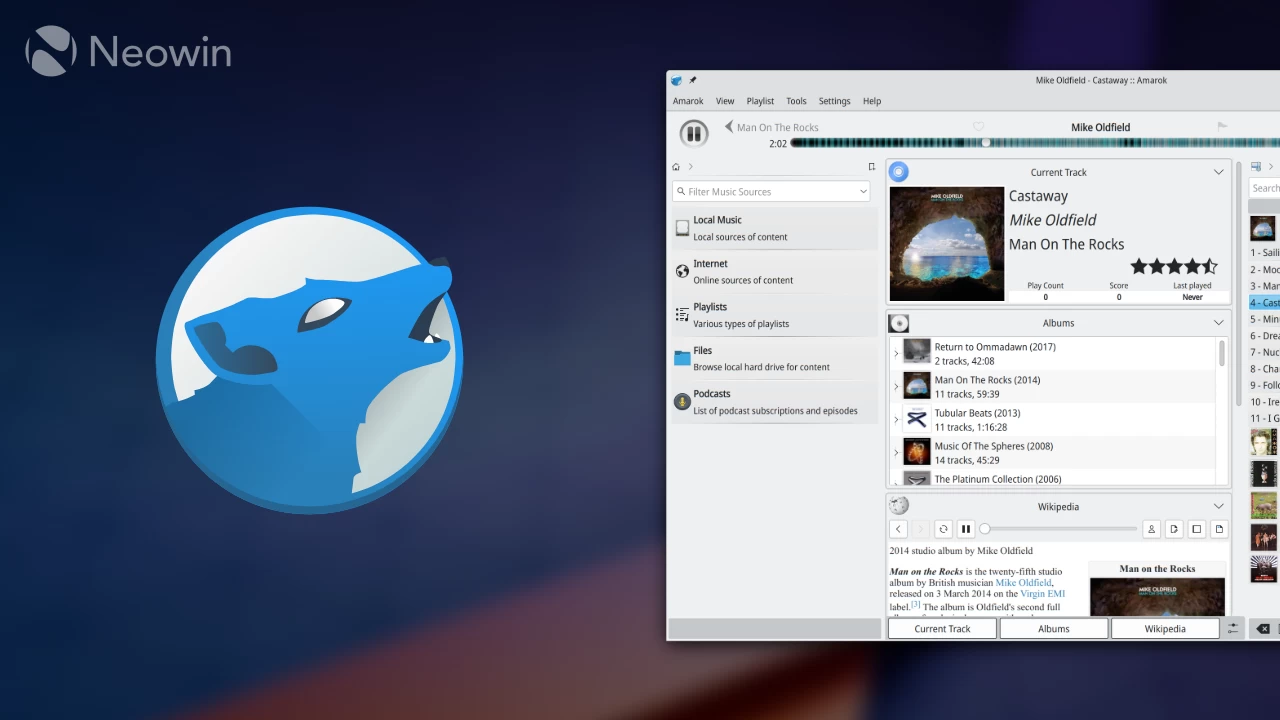
Audio players come and go, but one of the long-standing pack leaders is Amarok, a KDE project that has been around since 2003. This player was an essential application for anyone who ran a KDE 3 system, mostly because its interface was simple and did not get in your way.
After spending some time in hibernation following the 2.x series, development has picked up again. Now we have version 3.3 Beta 2, bringing some changes under the hood. The most important of which is a complete overhaul of the audio engine. The developers have ditched the old Phonon multimedia framework on Qt6 and reworked everything to use GStreamer instead.
The developers have also partially restored CUE sheet support, which is fantastic news for anyone who keeps albums as single audio files. ReplayGain logic has been improved to apply a default fallback value for tracks without loudness data, helping to even out the volume. Some work was also done to prevent potential database issues that could happen during library scans.
This release also finalizes some major changes that were introduced in the first beta, as outlined below:
- Dropping support for Qt5 and KDE Frameworks 5 entirely. It is Qt6 from here on out.
- Updating the database character set to allow full UTF-8 values, which is great for international music collections.
- Fixing a year 2038 bug for dates stored in the database.
- Removing TagLib extras support, which affects RealMedia and Audible files.
Now, before you rush off to install it, there are a couple of things to know. Because the first beta updated the database schema, downgrading from this beta back to an older version is not really possible unless you manually backed up your music library first.
Also, if you are a big Last.fm user, its official library has not caught up with the Qt6 world yet. You will need a specific build from a repository like this one to get those features working for now.
If you are feeling adventurous and want to try the new beta, you will probably have to build it yourself. For that, you can check out the project on GitLab for the source code and guidance. Some Linux distributions might also package the beta in their testing or unstable repositories, so it is worth a look there, too. You can grab the latest stable version of Amarok on Linux via FlatHub.
.png)




